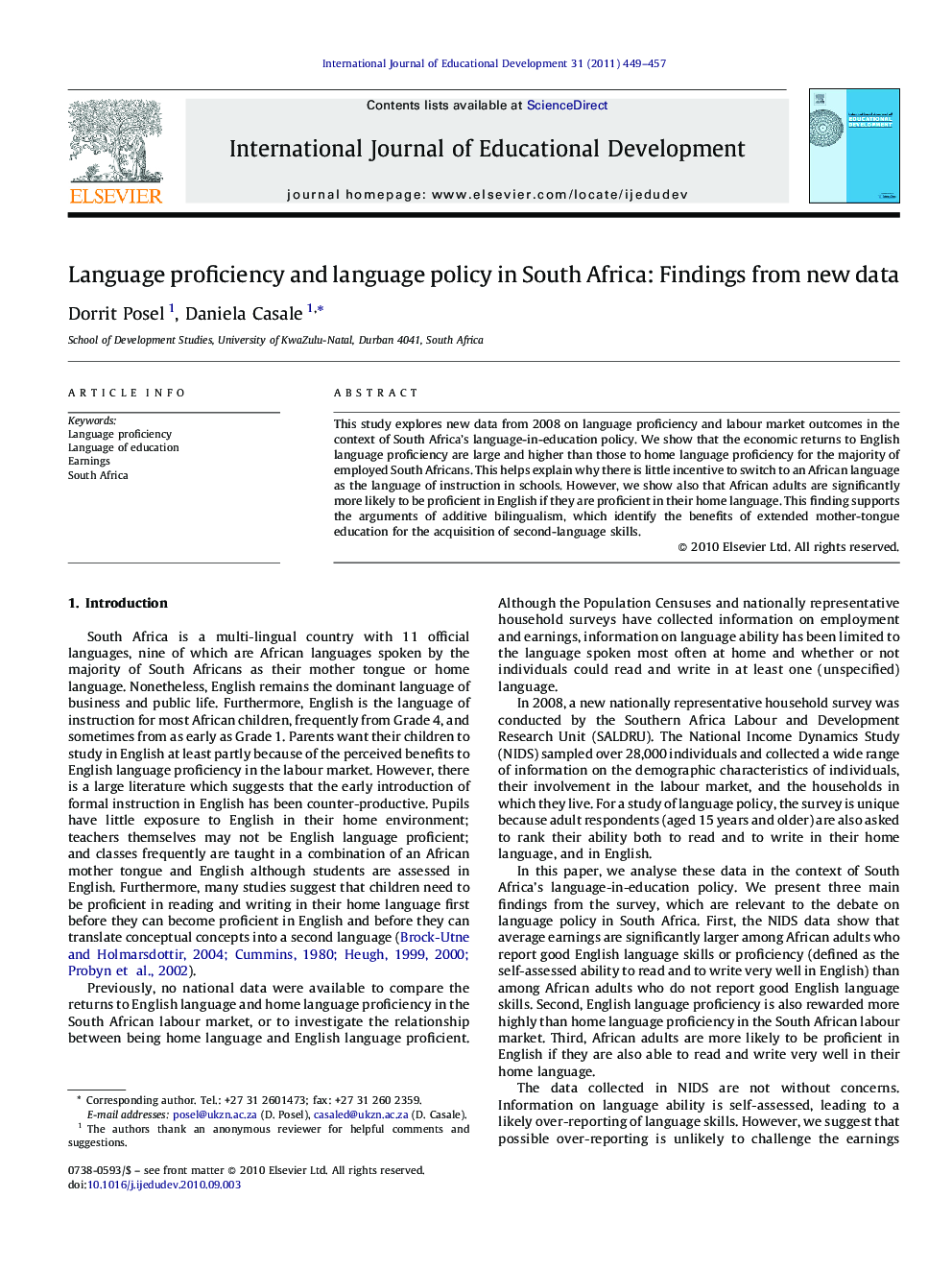| Article ID | Journal | Published Year | Pages | File Type |
|---|---|---|---|---|
| 356238 | International Journal of Educational Development | 2011 | 9 Pages |
This study explores new data from 2008 on language proficiency and labour market outcomes in the context of South Africa's language-in-education policy. We show that the economic returns to English language proficiency are large and higher than those to home language proficiency for the majority of employed South Africans. This helps explain why there is little incentive to switch to an African language as the language of instruction in schools. However, we show also that African adults are significantly more likely to be proficient in English if they are proficient in their home language. This finding supports the arguments of additive bilingualism, which identify the benefits of extended mother-tongue education for the acquisition of second-language skills.
Research highlights▶ In South Africa, English proficiency earns high returns in the labour market. ▶ Returns to home language proficiency are much lower than to English proficiency. ▶ Home language proficiency is a good predictor of English proficiency.
